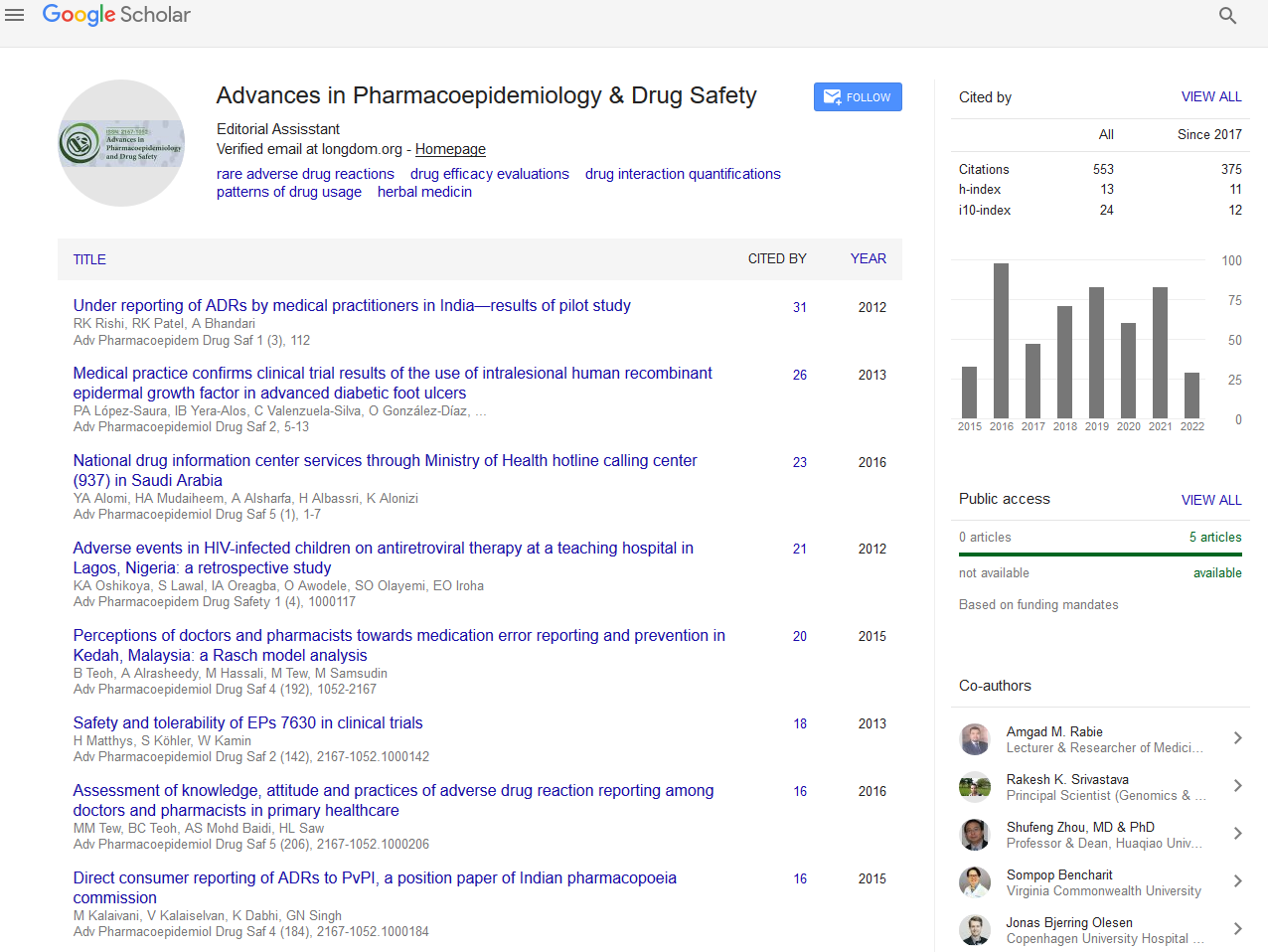Indexed In
- Open J Gate
- Genamics JournalSeek
- Academic Keys
- JournalTOCs
- RefSeek
- Hamdard University
- EBSCO A-Z
- SWB online catalog
- Publons
- Geneva Foundation for Medical Education and Research
- Euro Pub
- Google Scholar
Useful Links
Share This Page
Journal Flyer

Open Access Journals
- Agri and Aquaculture
- Biochemistry
- Bioinformatics & Systems Biology
- Business & Management
- Chemistry
- Clinical Sciences
- Engineering
- Food & Nutrition
- General Science
- Genetics & Molecular Biology
- Immunology & Microbiology
- Medical Sciences
- Neuroscience & Psychology
- Nursing & Health Care
- Pharmaceutical Sciences
Abstract
A Survey of Non-Small Cell Lung Cancer Patients with Meningeal Carcinomatosis in Japan: Incidence and Medical Resource Consumption
Shinya Ohno, Shiro Hinotsu, Kyoko Murata, Shiro Tanaka and Koji Kawakami
Background: Epidermal growth factor receptor tyrosine kinase inhibitors (EGFR-TKIs) may be effective for patients for non-small cell lung cancer (NSCLC) with meningeal carcinomatosis (MC), but evidence is limited particularly for the economics aspects. This study aimed to estimate the incidence of MC and resource consumption for NSCLC patients with MC as an exploratory study for further pharmacoeconomic evaluation of EGFR-TKI treatment in these patients.
Methods: Patients diagnosed with NSCLC in Kyoto University Hospital between January 1, 2005 and December 31, 2008 was identified using medical record data in the hospital. The cumulative incidence of MC was calculated taking into account the competing risk of death. The economic analysis adopted the payer perspective and included direct medical costs (2010 costs) from the date of diagnosis of MC until the time of death. The resource utilization data are expressed as costs per patient per month.
Results: Of 376 patients diagnosed with NSCLC in the study period, 28 were diagnosed with MC up to December 31, 2009 and the cumulative incidences at 1 and 2 years after NSCLC diagnosis were 2.4% and 6.0% respectively. The drug costs per patient per month in MC patients treated with an EGFR-TKI were more than twice that in the non-EGFR-TKI group, but the total costs per patient per month were lower in the EGFR-TKI group. A comparison of sub-categories of costs showed that hospitalization accounted for the highest percentage of medical resource consumption.
Conclusions: These estimates constitute a basis for cost-effectiveness analysis of EGFR-TKI treatment for NSCLC patients.


